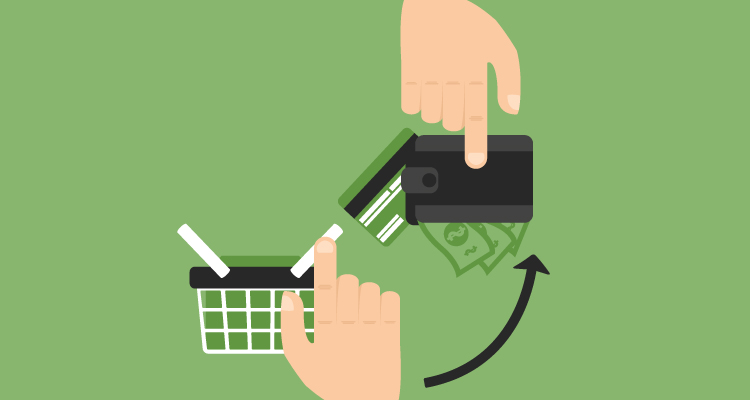The days of only accepting cash are over. Today you need to offer multiple payment options – regardless if you’re a solopreneur, small business owner, or nonprofit. That’s when payment processing tools come into the picture. What exactly are payment processors and what are the best sensational payment processing tools available?
Table of Contents
ToggleAn Overview of Payment Processing and Payment Processing Tools
Thanks to technology, you no longer have to accept paper and coins for the goods or services you provide your customers. They have a wide-range of options like credit cards, mobile payments, and even cryptocurrencies like bitcoin.
Thanks to advancements in technology, it’s never been easier for your customers to pay you with these payment options. They don’t even need to physically carry a wallet with them since all of this information is on their phones.
Here’s where things can get a little technical. Instead of handing you cash, your customers are paying you with a code that is then converted into money by your bank.
Thankfully, payment processors handle this for you since they make sure that your customer’s payment information is valid. They also process the payment between their credit card provider/bank and your bank, and gives you a way to issue refunds.
There are two-types of payment processors:
- Front-end payment processors are the services that you’ll need to use if you want to accept payments via your site or in your app.
- Back-end payment processors handle the transactions between your customers’ and your banks themselves. The processors will move the actual money around for you. In case you’re wondering, you can let your front-end payment processor worry about back-end payment processors.
If you handle high volume sales then there is one more option; a merchant account via your bank. This is where your bank will deposit payments directly, but you’ll have to be responsible for your own payment processing.
When you start to process payments you’ll probably choose one of the following payment systems:
- Account-based Payments where your customers sign into a third-party site like PayPal or Amazon.
- Direct Payment Services which is a custom eCommerce site where you accept payments directly.
- App-centric Payment Services which are another direct payment service of your own choice.
- Merchant Accounts, which again, is where your bank directly processes payments, but you’ll have to handle your own payments and security.
Each system has it’s pros and cons so make sure that you do some research and find the best system that’s right for your business. However, you’ll usually base that decision by answering the following questions:
- Does it support the payment methods you need?
- How much will you pay per transaction? What other fees are involved?
- What features do you need in a payments tool, such as recurring billing or mobile payments?
- Will it scale with my business?
The Three Best Sensational Payment Processing Tools
Since there are hundreds of options out there, you’ve decided to make the decision easier for you by listing the three best payment processing tools.
1. Due
A relatively new player in town, the company has only been around since 2015. Due has quickly become one of the most popular payment processing tools for small businesses, freelancers, startups. The reason? For starters, Due processes credit card at a flat-rate transaction fee of just 2.8 percent for credit card processing.
This same rate is even for global credit card payments. It can also process various other payment methods like ACH and cryptocurrencies and integrates with PayPal and Stripe.
Additionally, Due is also contains a digital wallet and comes equipped with invoicing, time tracking, and project management tools. It’s pretty much a one-stop solution for businesses of all-sizes.
There aren’t any hidden or monthly fees and funds are typically available within a day. Due also provides chargeback protection, fraud prevention, and live account monitoring.
2. Square
Being founded in 2009, Square pretty much offers all of the tools a business needs to accept payments. This includes check inventory, print reports, and send customers digital receipts. The best part? You can do all of this from your smartphone or tablet. This buying is thanks to Square’s clean and simple app and free card reader.
Other features offered by Square include fraud and chargeback protection and deposits on demand. These payments will be placed in your bank account in just one to two business days. If you need a small business loan or financing for your business, Square can help with that too.
You only pay per transaction – which is a low 2.75 percent transaction fee per swipe, dip, or tap – and there are no setup or monthly fees.
3. Stripe
Stripe was built in 2011 with developers in mind so that they could create custom payment solutions. Don’t let that deter you from giving it a try. Stripe can also be used in its basic form so that you can immediately start accepting payments without having to sign up for a merchant account.
Even if you stick with the standard payment platform, it still comes packed with features. The features let customers setup recurring billing. As a global payment option, Stripe plays nice with some 135 currencies, as well as Bitcoin.
It also accepts local payments like Alipay. You can use digital payment services like Apple Pay, Android Pay and AmEx Express Checkout. It also works with hundreds of other tools like Shopify, Wufoo, WordPress, Slack, and Due.
Stripe charges 2.9% + 30¢ per successful card charge. ACH and Bitcoin are 0.8% with a $5 cap and there are no other additional fees.
No wonder Stripe is a popular option for subscription services, on-demand marketplaces, e-commerce stores, crowdfunding, and even non-profits.














